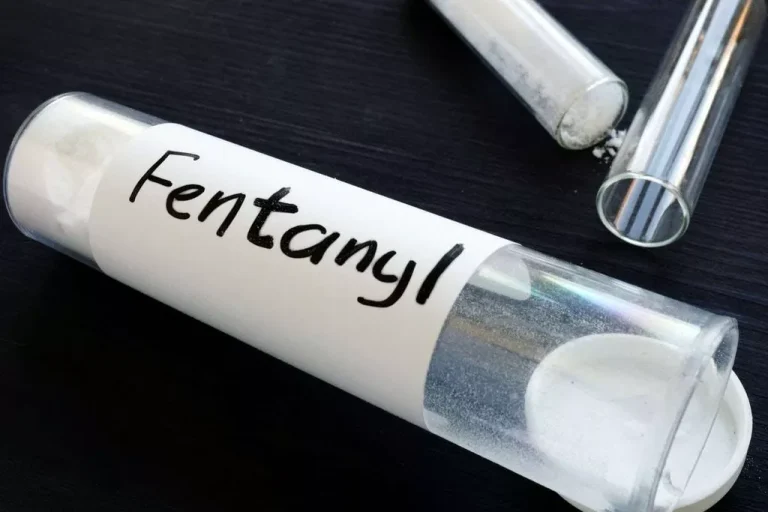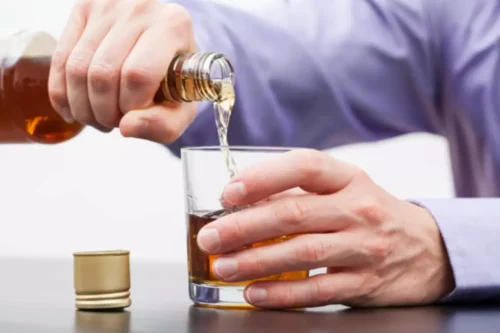Alcohol Detoxification and Withdrawal: Care Instructions Kaiser Permanente

In addition to the sober individuals, many people among the remaining two-thirds are also drinking less and experiencing fewer alcohol-related health problems after one year. Multiple factors can affect how long it may take you to withdraw from alcohol. A doctor will consider all these factors when estimating how to flush alcohol out of your system how long-lasting and how severe your symptoms may be. Detox diets are said to eliminate toxins, which supports improving health and promoting weight loss. By reducing inflammation, exercise can help your body’s systems — including its detoxification system — function properly and protect against disease.

Are there any specific foods that help metabolize alcohol quicker?
However, long-term or excessive use can slow down that process and could damage your heart, liver, kidneys, and gut health. When the substance enters the bloodstream, it affects all major organs in your body, including the heart and brain. That’s why heavy drinking can cause a variety of alcohol-related diseases and disorders.
Days Three To Seven

While alcohol is not considered a controlled substance under the Controlled Substances Act (CSA), it is illegal to sell or serve to anyone under the age of 21 in the United States. Fooling a drug test can be hard if you don’t know what you’re doing, but it’s possible with enough preparation. By trying a few tricks and techniques, you may be able to pass your drug test. Call your local emergency services if you suspect alcohol poisoning in a friend or loved one. The quicker you seek help, the more likely you are to minimize potentially fatal complications. Blood alcohol concentration (BAC) refers to the amount of alcohol in your blood to the amount of water in your blood.
Can I Cleanse My Body of Drugs in 24 Hours?

You’ll experience various symptoms and side effects but will eventually feel better – like a brand new person – once the process is completed. Another clue that can be an indication of an unhealthy relationship with alcohol is if you make “rules” around drinking. But Dr. Streem knows that it can be hard to recognize signs of alcohol abuse in ourselves. Often, people with alcohol use disorder find that other people in their lives spot their addiction long before they do. Therapy can help you understand why you drink and learn new habits so you can live a healthy lifestyle that doesn’t rely on alcohol as a crutch.
- Multiple factors can affect how long it may take you to withdraw from alcohol.
- If you don’t like drinking water straight up, you can add a little flavoring to it.
- Just as family history plays a role in the development of an alcohol use disorder, how quickly the body processes and excretes alcohol also has a genetic link.
If you’re keeping up with this average (or less), the damage from alcohol is most likely minimal. “Nutrition optimization is actually the most evidence-based and most important intervention aside from stopping drinking,” points out Dr. Lindenmeyer. This is because, for a lot of people who experience some kind of liver dysfunction, it makes them at risk of not getting enough proteins, calories or vitamins. The process will help your system withdraw from the alcohol you have been addicted to.
- Alcohol — or ethanol — tests can detect alcohol metabolites in urine, breath, saliva, sweat and blood for between two and 80 hours.
- Activated Charcoal is actually quite incredible, and is used in emergency rooms around the world to support detoxification after the ingestion of chemical or environmental poisons.
- Aim for a minimum of seven hours of sleep each night to allow your body to recuperate fully.
- If you are a heavy or long-time drinker, your liver may require more time to eliminate alcohol from your body.
- For example, high consumption of sugary beverages can cause fatty liver, a condition that negatively impacts liver function (30, 31, 32).
- Research links high consumption of sugary and highly processed foods to obesity and other chronic diseases, such as heart disease, cancer, and diabetes (27, 28, 29).
Acetaldehyde metabolizes into carbon dioxide, which the body can eliminate. Making alcohol difficult to access can help you avoid temptation and increase the chances of a successful detox. The detoxification timeline varies based on the severity of the alcohol addiction.
Understanding Alcohol Metabolism
Your liver metabolizes more than 90% of the alcohol you consume (3). Moreover, no evidence supports the use of these diets for toxin elimination or sustainable weight loss (1, 2). Detox diets often involve the use of laxatives, diuretics, vitamins, minerals, teas, and other foods thought to have detoxing properties. †Statements on this website have not been evaluated by the food and drug administration.
How Long Does It Take to Detox from Alcohol?
- Foods rich in potassium include potatoes, squash, kidney beans, bananas, and spinach (51).
- Whether or not a drug you have been taking will show on a drug test depends on a few factors, including the type of test.
- Therapy can help you understand why you drink and learn new habits so you can live a healthy lifestyle that doesn’t rely on alcohol as a crutch.
- However, long-term or excessive use can slow down that process and could damage your heart, liver, kidneys, and gut health.
- When alcohol detox is treated in an inpatient rehab facility, different medications may be used to help reduce uncomfortable withdrawal symptoms.
The EtG test can detect this alcohol metabolite for 3 to 5 days after consuming alcohol but does not accurately indicate if someone is currently intoxicated. The body metabolizes alcohol by oxidizing the ethanol to acetaldehyde. The acetaldehyde is broken down into acetic acid and then further broken down into carbon dioxide and water. Most of the alcohol you consume is metabolized in the liver, but about 5% of the alcohol you drink is excreted by the body through sweat, breath, urine, feces, and saliva. You can start to feel the effects of alcohol in a matter of minutes. When ingested, alcohol is rapidly absorbed from the stomach and small intestine into your bloodstream before it travels to the central nervous system (brain and spinal cord).
Next stop: the liver
- Your body has a sophisticated way of eliminating toxins that involves the liver, kidneys, digestive system, skin, and lungs.
- If you are considering at-home detox, speak with your doctor before beginning the process.
- However, it’s primarily the liver that plays a crucial role in breaking down alcohol.
- As with other addictions, alcohol dependency can negatively affect a person’s life.
- After the first week, it is recommended that you go back to drinking at least 64 ounces of water every day.
Talk to a doctor about your personal history and what’s right for you. Your liver has enzymes that work like special tools to help metabolize (break down) different toxins that enter your body, such as alcohol. If you don’t like drinking water straight up, you can add a little flavoring to it. After the first week, it is recommended that you go back to drinking at least 64 ounces of water every day. Joining a specialized program is ideal if you want to remove alcohol from your body.
Reduce your intake of sugar and processed foods

But since you want to flush out alcohol from your body fast, try doubling that amount. This approach might help remove https://ecosoberhouse.com/ the last traces of liquor in your system. If you don’t like plain water, add some lime, lemon, or orange.

